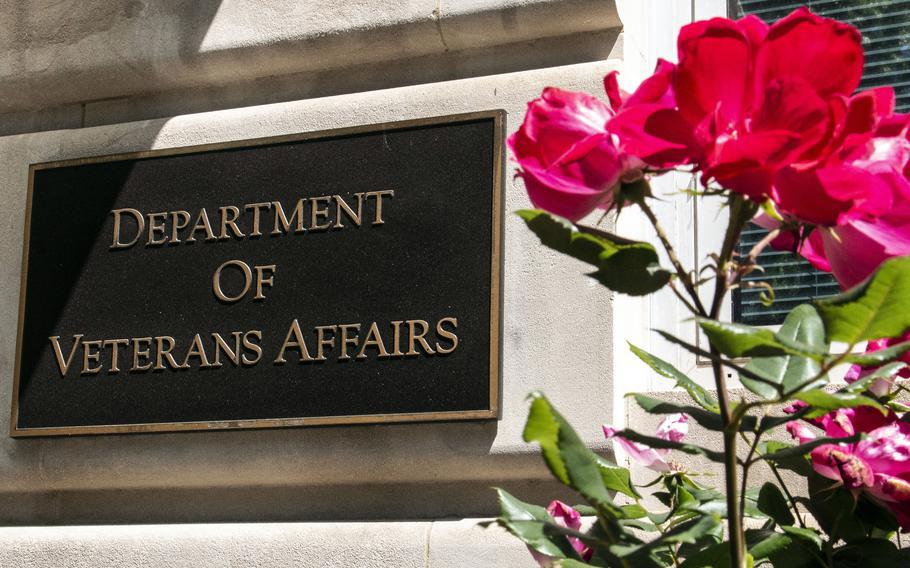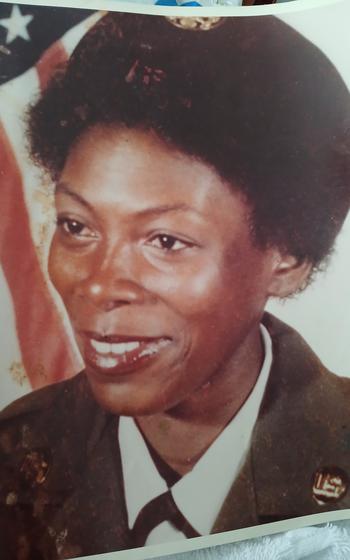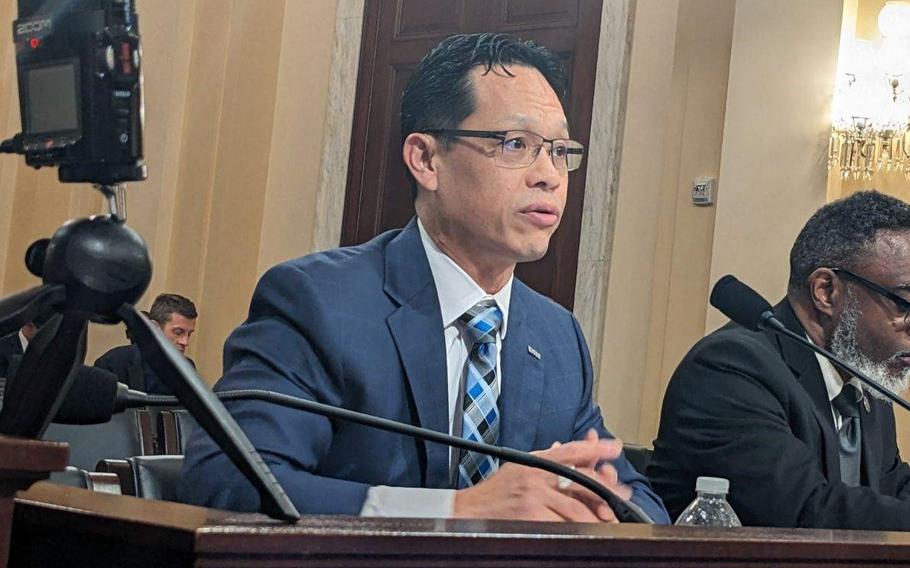
Lawmakers are considering legislation to expedite the hiring of psychiatrists completing their residency programs at Department of Veterans Affairs health facilities. Chronic staffing shortages at many VA facilities are causing long delays in services, including for psychiatric care. (Stars and Stripes)
WASHINGTON — Army veteran Annette Johnson struggles with post-traumatic stress disorder from her days in the service and has sought psychiatric care at a Department of Veterans Affairs clinic in Baltimore for flashbacks and anxiety that keep her on edge.
But Johnson, who was once homeless and has a history of mental health problems that require hospital care, said she was told last month that there is a backlog of veterans seeking appointments and she would have to take her place in line. The next available appointment was in June, she said.
“I am a 100% disabled veteran with two service ribbons. I had been living in my car for almost a year on the streets of Baltimore,” Johnson said.
Chronic staffing shortages at many VA facilities are causing long delays in services, including for psychiatric care. The VA Office of Inspector General in 2023 reported “severe shortages” for psychiatry staff at many VA health facilities.
Legislation introduced by Rep. Mark Cartwright, D-Penn., seeks to expedite the process for recruiting and hiring psychiatrists who have just completed their residency programs at a Veterans Health Administration facility.
The legislation aims to speed up the VA’s hiring process to fill critical shortages of psychiatrists at hospitals and clinics where positions have remained open for at least 35 days.
Cartwright said there is a “bureaucratic maze” for initiating the employment process for new psychiatrists. He said it is creating delays for new hires.
“We have a responsibility to do all we can to make sure the brave men and women who served get the care they need and deserve when they return,” he said. “This legislation simply speeds up the process for recruiting trained, talented mental health professionals into a career caring for the invisible wounds of our nation’s veterans.”

Annette Johnson, an Army veteran, said when she called for an appointment recently for psychiatric care at her local VA clinic in Baltimore, she was told there were no openings available until June. Johnson is shown here in 1980 after she joined the Army. (Annette Johnson)
In Johnson’s case, she will have to wait four months to see a VA psychiatric nurse, she said.
The nurse works in consultation with a VA psychiatrist in diagnosing and managing treatment for patients such as Johnson. Psychiatric nurses help ease bottlenecks in providing mental health care. But the VA acknowledges that the staffing model is not enough to meet demand.
Johnson, 62, is a retired sergeant who said she experienced injuries to her back, hips, legs and a kidney during 12 years of service with deployments to Korea, Germany and Fort Hood, Texas. She retired in 1992. She also said she suffers from PTSD related to military service.
“I have a lot of problems with depression,” she said.
Almost one third of veterans within the VA health care system suffer from PTSD, which contributes to an individual’s risk of suicide, according to the VA. A veteran is 50% more likely to take his or her own life than a person who has never served in the military, the department said.
PTSD is a chronic mental health disorder that causes individuals to experience flashbacks, mood swings and extreme emotions when triggered by memories of traumatic events.
VA policy requires patients requesting or referred for mental health services receive an initial assessment within 24 hours and a full evaluation within 14 days.
Johnson said when she inquired about an appointment last month, there was no evaluation of her current mental health. She said she lived in her car until she had saved enough money from her monthly disability and pension checks for a down payment for an apartment.
Jon Retzer, assistant national legislative director for the Disabled American Veterans, said his organization supports Cartwright’s legislation for addressing hiring delays.
Retzer pointed to the 2023 inspector general’s report that showed nearly 75 of 139 VA health care facilities had a shortage of psychiatrists.

Jon Retzer, assistant national legislative director for the Disabled American Veterans, told House lawmakers last week that his organization supports legislation for expediting the hiring process for psychiatrists who have just completed residency programs at a Veterans Health Administration facility. (Disabled American Veterans)
“This bill would allow the VA to directly hire psychiatrists who have completed residency at a VA facility, bypassing civil service or classification laws that can cause delays,” he said.
Psychiatrists still must meet educational requirements and credentials for employment, Retzer said.
“This bill could create a more efficient hiring process for psychiatrists trained by the VA, who are already culturally competent, to provide immediate clinical lifesaving services, including VA suicide prevention and lethal means safety counseling to veterans in need,” he said at a hearing last week of the House Veterans’ Affairs Committee’s subpanel on health that examined several bills for improving medical services for veterans.
Residency programs represent a major source for hiring psychiatrists, said David Perry, chief officer of workforce management and consulting for the Veterans Health Administration.
But Perry could not provide numbers on how many psychiatrists are hired yearly through VA residency programs. He told House lawmakers that the VA believes Cartwright’s legislation is not needed.
“We have that authority now and have up to a year to identify psychiatrists in training and residency programs,” Perry said.
Yet the legislation has broad support from veterans organizations.
This bill has been endorsed by the American Veterans for Equal Rights, the Military Order of the Purple Heart, the Retired Enlisted Association, the Blinded Veterans Association and the National Alliance on Mental Illness.
“Being able to release my feelings to someone who understands my military background is important,” Johnson said about her psychiatric appointments. “When I am going through rough periods, my PTSD hits me a lot. It’s triggering. Not being able to make an appointment feels devastating. I do need to talk to someone sooner than June.”